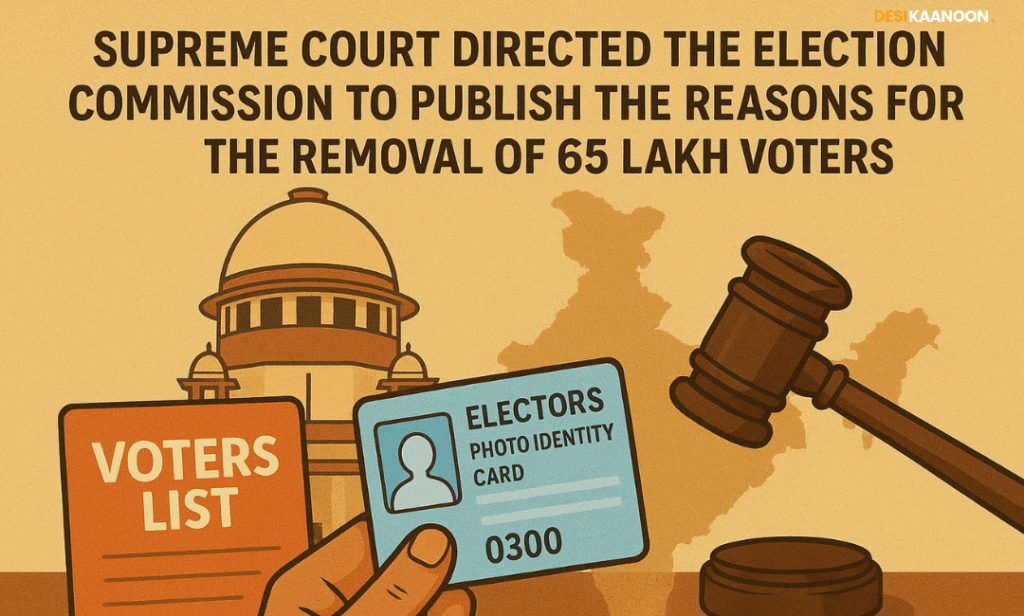Akhya Pandey
On 14th August 2025, the Supreme Court directed the Election Commission of India to publish the names of about 65 lakh voters removed from Bihar’s draft electoral rolls during special intensive amendment with the reasons for each deletion. The Court made it clear that closing the name of a citizen from rolls is not a mechanical function, but a one that affects the very original of the democratic process, and therefore it should be done with transparency.
Justice Surya Kant remarked during the hearing, “If Poonam Devi has been omitted, Poonam Devi should know why”. The Court held that while the Election Commission enjoys plenary powers under Article 324 of the Constitution of India and statutory authority under Section 21(3) of the Representation of the People Act, 1950 to revise the rolls, such powers cannot be used in privacy and should be accompanied by clear disclosure.
In its order, the Court directed the Commission to upload the list of names and booth-levels removed on the official websites in the format discovered by the EPIC number and to display in public places like election offices, panchayats and booth level officials. To ensure that the information also reaches the most marginalized, the Court directed the Commission to promote the deletion of virtuous newspapers, orders, all India radio and social media, while also clarifying that the claim can be filed with Aadhaar or voter ID card as a base. Within 56 hours of the ruling, the Commission complied with the District Magistrates’ websites and the Chief Electoral Officer of Bihar by uploading the list of deletion.
Chief Election Commissioner Gyanesh Kumar also announced that voters and political parties should raise claims or objections by 1st September 2025, taking care that no improvement would be made after the deadline.
The order was passed in the ongoing Public Interest Litigation, Association for Democratic Reforms and ORS vs. Election Commission of India (PIL-W No. 640/2025), where petitioners argued that the amendment process raised the risk of millions of voters. Earlier, on 10th July 2025, the Court had already directed the Commission to accept Aadhaar, Ration Card, and Peoples as legitimate documents for verification so that the citizens do not lose their franchise only for lack of a particular form. The matter continues the widespread jurisprudence of the Supreme Court on electoral transparency, for the first time in the Union of India v. Association for Democratic Reforms, (2002) 5 SCC 294, where the Court said that voters have a fundamental right to know the antecedents of candidates under Article 19 (1) (a) Constitution of India, including their criminal records, assets and qualifications.
By requiring the Election Commission to not only publish but also justify the deletion of names from electoral rolls, the Supreme Court has once again reinforced that democracy thrives only when its processes are open to scrutiny. The present order makes it clear that voters are not passive subjects of the system, but active participants entitled to know why their voices may be silenced.
Bench: Justice Surya Kant and Justice Joymalya Bagchi.
Case Name: Association for Democratic Reforms and ORS vs. Election Commission of India
Case No.: PIL-W No. 640/2025
Instagram: Click Here.
LinkedIn: Click Here.
For Collaboration and Business: Click Here.

